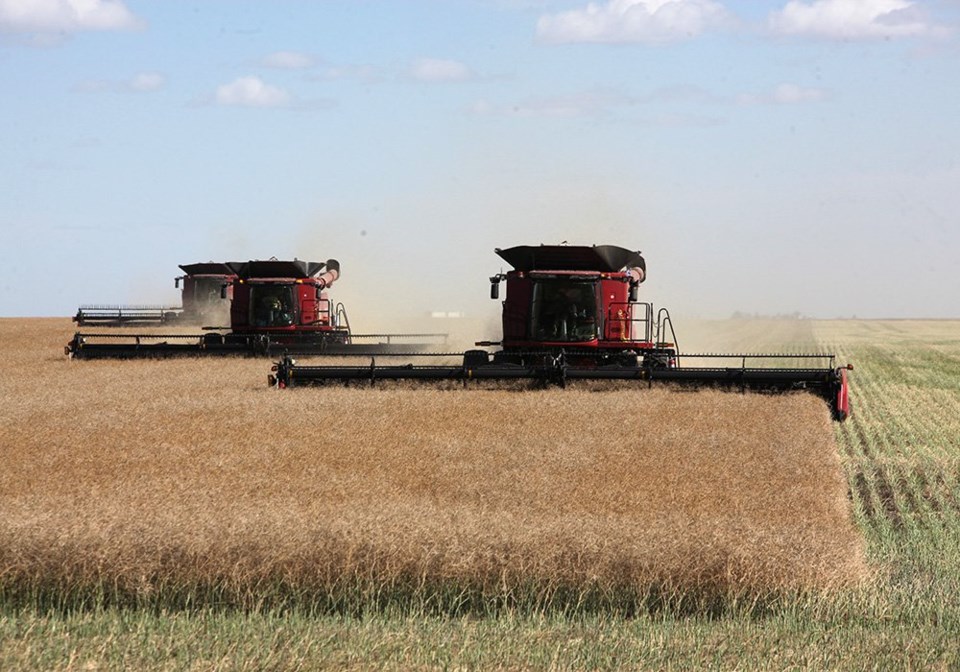WESTERN PRODUCER — A church leader sends a goat into the wild after the sins of the congregation are symbolically piled upon its back. It sounds a bit like what the Saskatchewan government did last week when its budget report to voters made farmers into scapegoats.
The provincial finance ministry played fast and loose with the wording of its mid-year financial report in which it appeared to blame farmers’ crop insurance claims for a chunk of Saskatchewan’s deficit.
Was this a ruse to diminish the appearance of a deficit for the benefit of non-farming and urban Saskatchewanians? Or, worse, does government actually believe that declaring the $1.8 billion crop insurance payment to producers as part of their provincial budget highlights is proper accounting? Government claims the latter.
Either way, the message to the people of Saskatchewan was that agriculture and farmers, and the effects of a nasty drought, were responsible for the deficit by noting the “most significant increase over budget at mid-year is in agricultural expense, which is up $2.1 billion. This includes $1.8 billion for crop insurance claims, bringing the total indemnity forecast to $2.4 billion, and $292.5 million in relief for livestock producers.”
Yes, it’s as clear as wet Regina clay.
The finance ministry also cited transfers and income from the federal government that increased by $542 million, mostly related to federal programs surrounding COVID-19 and drought. In addition, it listed other “own-source revenue” of $347 million, in part due to crop insurance’s reinsurance payments.
The balance of any crop insurance costs was paid through the Saskatchewan Crop Insurance Corporation’s own $2.5 billion surplus.
The province’s budget report did not need to highlight and emphasize crop insurance payments to producers as a new and unforeseen cost to taxpayers. The general population looks at the provincial budget update as a balance sheet on their collective spending to keep Saskatchewan afloat. It isn’t an accounting document.
They would naturally presume the big numbers presented as expenses to government are covered by their taxes.
Farmers take enough heat already from the public and its misunderstandings about agriculture. Government declarations like the one issued last week widen the gap.
Whether it was a conscious effort to moderate a big number — a public relations spin— or simple failure to understand the effect of its words, the finance ministry did no favours for Saskatchewan farmers.
Crop insurance is a well-managed and critical program for producers. Premiums are paid by farmers and two levels of government, augmented by revenue from surpluses and reinsurers. It shouldn’t be highlighted as income or expenses except where appropriate.
The Agriculture Producers of Saskatchewan took exception to the government’s public portrayal of the sector and responded with a letter objecting to budget report wording.
In return, they got a letter suggesting APAS was deceitful, ignorant or misinformed in its concerns.
Adding injury to insults, the ministry then threatened APAS, saying it shouldn’t take the government’s agricultural “support for granted the next time” it is critical of government activities.
That prompted yet another letter from APAS, in which the organization reasonably observed that “many Saskatchewan producers are working through a difficult year, and they are concerned that they are being considered a burden on the province’s finances. Farmers shouldn’t have to defend using a program that is actuarily sound and built on a longstanding partnership between the federal and provincial governments and producers.”
Perhaps Saskatchewan’s cabinet ministers, and the premier, should consider what support is being taken for granted here. If farmers want goats, they will raise them. It’s not a job for government to create them.
Karen Briere, Bruce Dyck, Barb Glen and Mike Raine collaborate in the writing of Western Producer editorials.




